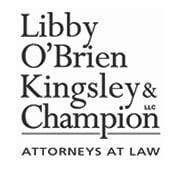In addition to the evidentiary standards contained in the Maine Rules of Evidence, the Maine Supreme Judicial Court (the “Law Court”) has identified specific judicial standards and procedures that are applicable to the admissibility of expert testimony. While a primary test for admissibility are the Rules of Evidence, judicially crafted standards and limitations constitute a large part of the admissibility evaluation. In addition, courts have articulated a new formulation for the admissibility test of new or novel scientific theories and expert testimony in general.
Federal courts have long followed the doctrine set forth in Frye v. United States, 293 F. 1013, 1014 (D.C. Cir. 1923) to judge the admissibility of expert testimony. The so-called Frye standard was an imprecise and difficult to quantify test to determine whether the particular science or procedure was “sufficiently established to have gained a general acceptance in the particular field in which it belongs.” In State v. Williams, 388 A.2d 500, 504 (Me. 1978), the Law Court rejected the Frye standard and repeated that the primary test for admissibility must be made under Maine Rules of Evidence 402 and 702. The Williams court dealt with the admissibility of voice print or speech spectrography, a relatively new science at the time. In rejecting the Frye standard, the court stated:
On the approach we adopt the presiding Justice will be allowed a latitude, which the Frye rule denies, to hold admissible in a particular case proffered evidence involving newly ascertained, or applied, scientific principles which have not yet achieved general acceptance in whatever might be thought to be the applicable scientific community, if a showing has been made which satisfies the Justice that the proffered evidence is sufficiently reliable to be held relevant.
State v. Williams, 388 A.2d at 504. In Williams, the Law Court upheld the trial judge’s decision to admit voice print identification as both “sufficiently reliable” and “relevant.”
Given the pace of technological change and advancement in our society, science and the professions continually push against the standards governing the admissibility of expert testimony. As part of this growth, the U.S. Supreme Court articulated new standards for the qualification of experts and the admissibility of new or novel expert testimony. Daubert v. Merrell Dow Pharms., Inc., 509 U.S. 579 (1993). The judge’s role in the evolution of expert testimony has been that of a gatekeeper to filter out experimental or unreliable expert testimony from the trier of fact. The Daubert standard focused on four primary factors:
1.) whether a theory or technique can be or has been tested,
2.) whether the theory or technique has been subjected to peer review and publication,
3.) whether in respect to a particular technique there is a high known or potential rate of error, and
4.) whether the theory or technique enjoys general acceptance within a relevant scientific community.
While Maine has not adopted the Daubert standard, similar factors have been identified by the Law Court to determine a “threshold level of reliability” with respect to newly ascertained or applied scientific principles. Searles v. Fleetwood Home of Pa., Inc., 2005 ME 94, ¶ 23, 878 A.2d 509. The Searles case dealt with the measurement of fungal volatile organic compounds (VOCs) and whether they had caused irritation of the type experienced by plaintiffs. Addressing the question of reliability, the Law Court stated:
Indicia of scientific reliability may include the following: whether any studies tendered in support of the testimony are based on facts similar to those at issue, In re Sarah C., 2004 ME 152, ¶ 13, 864 A.2d at 165; whether the hypothesis of the testimony has been subject to peer review, id.; whether an expert’s conclusion has been tailored to the facts of the case, id.; whether any other experts attest to the reliability of the testimony, State v. Irving, 2003 ME 31, ¶ 14, 818 A.2d 204, 208; the nature of the expert’s qualifications, id.; and, if a causal relationship is asserted, whether there is a scientific basis for determining that such a relationship exists, State v. Black, 537 A.2d 1154, 1157 (Me. 1988).
Searles v. Fleetwood Home of Pa., Inc., 2005 ME 94, ¶ 23. Several of the factors articulated by the Searles court resemble the Daubert standards set forth by the U.S. Supreme Court. While the factors in the reliability assessment may be similar, the primary test for admissibility of an expert witness statement in Maine remains Rule 702 dealing with expert testimony and Rule 401 in determining whether expert testimony will assist the trier of fact in understanding the evidence. It is, of course, necessary to measure the testimony of any expert by existing case law with attention to whether the reliability of the expert testimony meets some or all of the factors set forth in Searles.
Ultimately, the scope of an expert witness’s opinion testimony is a matter within the discretion of the trial court. State v. Tibbetts, 572 A.2d 142, 143 (Me. 1990). A judge is not required to accept an expert’s opinion or testimony even if the testimony is uncontradicted. Dionne v. LeClerc, 2006 ME 34, ¶ 15, 896 A.2d 923.
This article is the fourth installment in a series providing general information about the use of expert testimony and opinion testimony in divorce litigation. The entire Chapter regarding the Use of Experts in Divorce Litigation was published by MCLE New England in February of this year: A Practical Guide to Divorce in Maine. The Guide is available for purchase at the MCLE New England website at www.mcle.org.
The author of this article, Gene R. Libby, is a founding partner of Libby O’Brien Kingsley & Champion, LLC. Gene is a highly experienced trial lawyer who practices primarily in the areas of family law, civil litigation and criminal defense.

